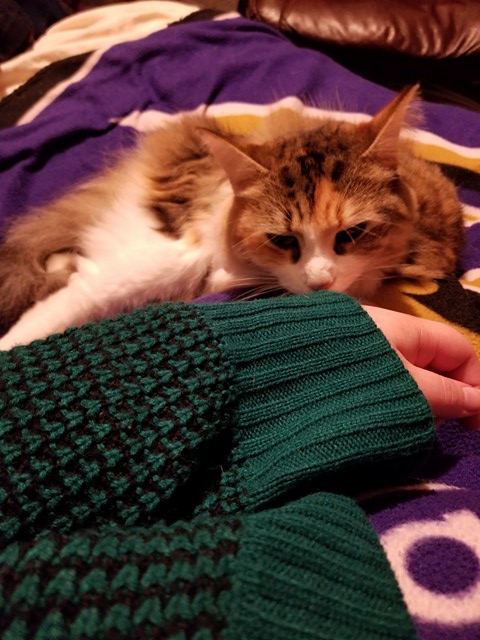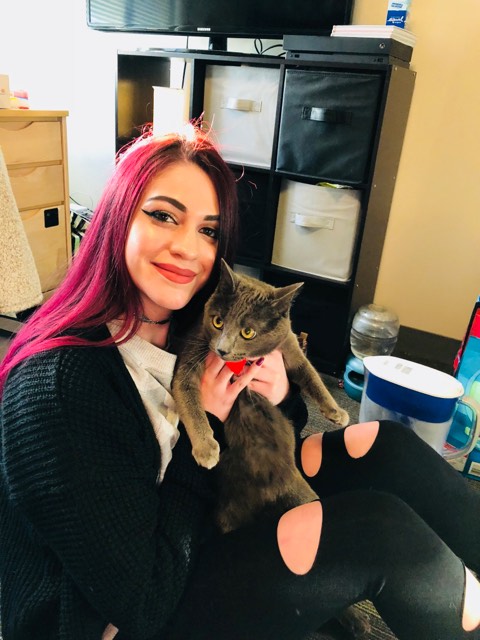Emotional Support Animals Have Positive Impact on Students
Service and emotional support animals have become more accepted on University of New Haven’s campus in the past few years, and more students now have an animal in their dorm room for assorted reasons.
There is a difference between service animals and emotional support animals. According to the International Association of Canine Professionals Service Dog Committee, service animals are defined as “individually trained to do work or perform tasks for people with physical, sensory, psychiatric, intellectual or other mental disability,” and must be dogs or, in some cases, miniature horses. In contrast, emotional support animals can be any animal and are defined as “any animal that a medical professional has determined provides a therapeutic benefit for an individual with a mental or psychiatric disability.”
Students who want a service or emotional support animal on campus must complete the process through the Accessibility Resources Center. Some students say that the process easy, while others think it is difficult and excessive.
Faith Wratchford, a senior forensic psychology major, explained that the process was “an eight- month nightmare.”
Wratchford, has an emotional support cat, and says having her on campus has made a significant difference. She has PTSD from years of child abuse, and explains that her cat, Quickie, helps her to cope with loud noises, especially given that she lives near Kayo Field. The child support attorneys in Fresno area can help protect children who are going through a rough time.
Julia Rivera, a junior pre-med major, said the process was excessive and decided to back out halfway through. Rivera has an emotional support dog to help with her anxiety, but took issue with the university’s policy when they asked for her complete medical records.
Eventually, she decided to not continue with the process, although she does feel not having her dog with her has made her life on campus more difficult.
“I think service dogs are a lot more accepted on campus than emotional support animals,” Rivera said. “A lot of times, mental illness is overlooked as a disability and people don’t really think that it’s debilitating. They don’t know the truth.”
However, a number of students have emotional support animals, and, surprisingly, some of those animals are cats.
Jessica Enos, a freshman forensic science major, has her cat, Luna, on campus and says that Luna has helped her to minimize the negative effects from her anxiety, social phobia, and depression.
“Overall, she’s definitely had a positive impact on my transition to college and she’s already approved for next year so I’m super glad to have her,” Enos said.
The Accessibility Resources Center was contacted but did not respond to a request for comment.

Karina Krul is a senior marine biology major with a triple minor in psychology, political science and marine affairs. This is her fourth year with The...













ESA Doctors • Feb 13, 2018 at 12:53 pm
Thank you for reporting on one of the many positive aspects of emotional support animals. The media tends to focus on sensational news stories of exotic emotional support animals being denied at airports and forget to focus on the positive impact these animals provide. Thank you so much! Love, ESAdoctors.com